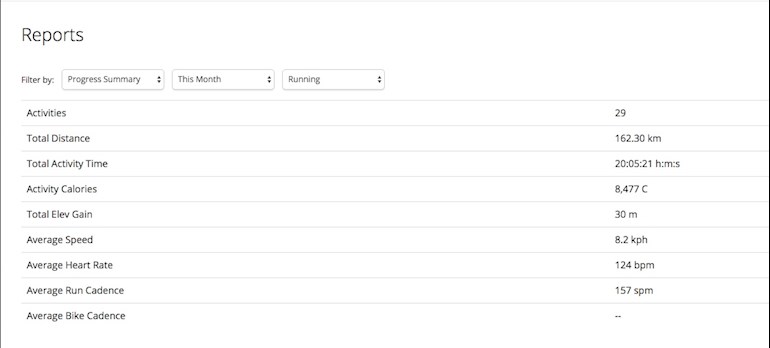Last month I experimented with nasal breathing and started following the Douillard/Maffetone method of low intensity running to build my aerobic base.
The bad news – it's really frustrating having to slow down/walk whenever your heart rate goes outside your target zone (118 to 128 for me).
The good news – because it's very low impact, you can run every day. Yay!
And my progress? Well, my body is adapting. I am now able to get into a steady jog after about 500m of run/walk warm-up. At first, I was going 45 minutes without my HR settling into my target range. As I've improved, I have been able to start running and keep it up earlier and earlier in each run.
I've managed to run on 29 days in March and I've covered 162.3 km. (Garmin Connect summary attached). I've noticed improvements, breaking my 1k and 1 mile records three days running this week. However, I've yet to break 30 minutes for the 5k again and my PB set last October still holds.
My dilemma is when to resume intervals again – I don't want to undo all the good work of the past couple of months. I have it in mind to attempt to run as far as I can aerobically but haven't yet had a day where I had the time to devote to it.
I've also given up alcohol and today is my 19th day.

